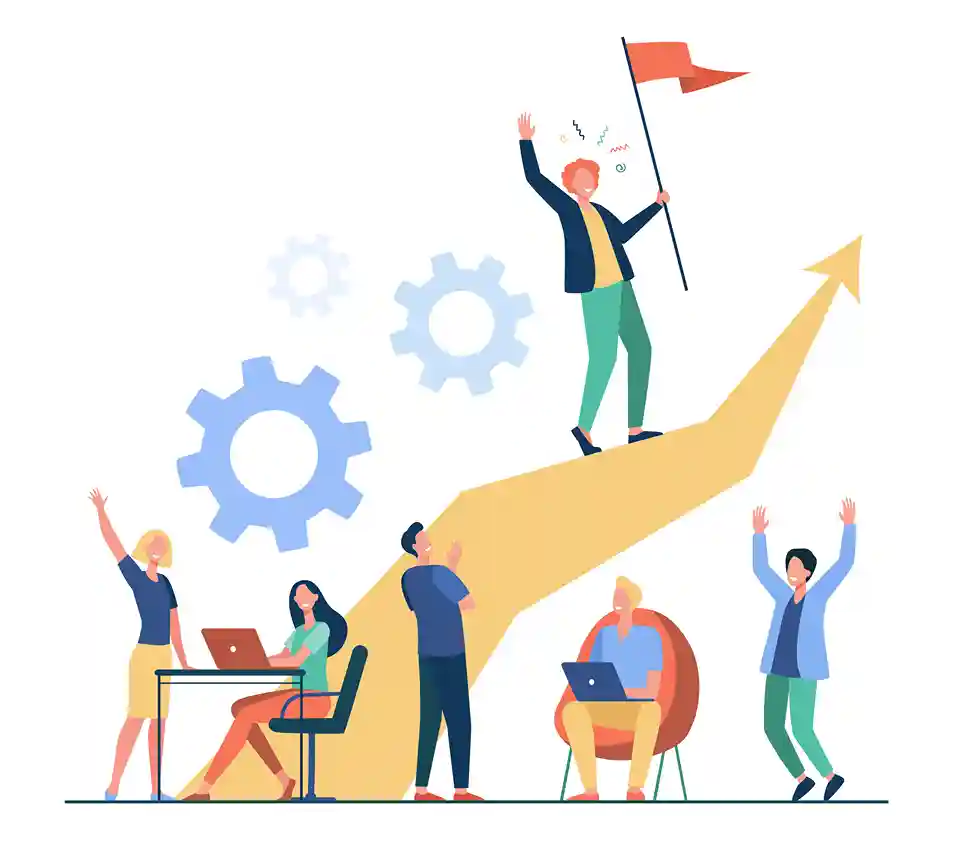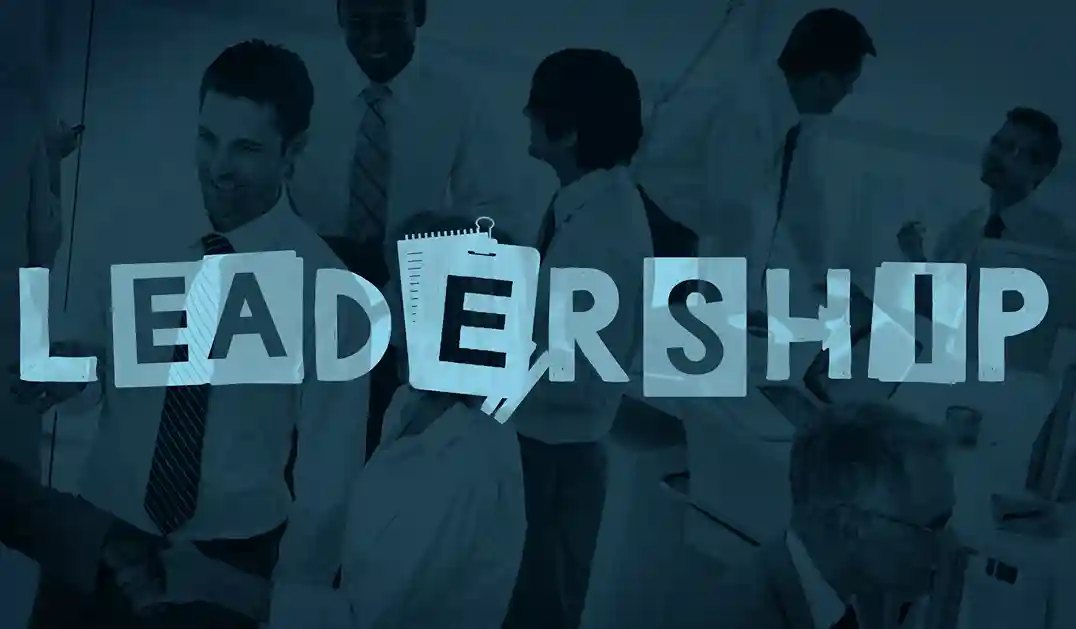Introduction
Personal leadership development enables individuals to reach their goals while developing into their most potential version. Everyone who wants career success as well as stronger relationships or improved self-discipline needs personal leadership development. This practice enables you to control your behavior along with your mental processes and daily routines to establish a meaningful existence with purpose.
This guide presents seven key steps that lead to mastering personal leadership development and developing resilience and confidence as well as a growth mindset. This approach enables you to develop leadership abilities that will lead to positive effects in your personal development while enabling you to inspire positive changes in others.
1. Define Your Vision and Purpose
Starting your leadership development path requires a specific goal you want to attain. The vision functions as your guiding star for concentration and motivation.
How to Define Your Vision:
- Take time to evaluate what things truly hold value to you.
- Identify your strengths and passions.
- You should create your mission statement following your core values.
- Create short-term and long-term goals that are derived from your end vision.
The process of making decisions becomes simpler when you feel purposeful because you achieve clearer vision and stronger determination while facing challenges.
2. Cultivate Self-Awareness
The base of individual leadership growth starts with self-awareness. Keeping track of your personal strengths together with weaknesses and emotional triggers lets you make purposeful decisions and boost your development.
Ways to Improve Self-Awareness:
- Maintaining a journal permits you to track your emotional and mental responses.
- You should ask your mentors, friends, and colleagues to provide their feedback.
- Mental focus through mindfulness practices helps your self-reflection while staying present.
- Take time to evaluate your conduct during various situations so you can detect universal behavior patterns.
People who know themselves well can recognize their growth potential to create solutions that solve obstacles they face.
3. Develop Emotional Intelligence
Personal leadership development strongly depends on emotional intelligence (EQ). Through such understanding, you can effectively manage and express your emotions and also develop empathy toward others.
Key Aspects of Emotional Intelligence:
- Self-Regulation: People who manage their stress along with executing impulse control and adapting to change demonstrate self-regulation.
- Empathy: People who demonstrate empathetic abilities successfully understand and share the emotions of others.
- Social Skills: One should develop excellent relationship-building abilities and master effective communication skills.
- Motivation: The key aspect of staying driven is to preserve a positive outlook on life while staying focused.

Leadership with high emotional intelligence enables them to inspire people and resolve conflicts with stability while creating empowering conditions.
4. Strengthen Your Self-Discipline
Creating personal leadership development requires self-discipline since it helps you maintain dedication toward your aims even when faced with interruptions and delays.
How to Build Self-Discipline:
- Develop a schedule for each day, which you should follow religiously.
- Turn ambitious goals into sections that you can handle one by one.
- Avoid procrastination by setting deadlines.
- Hold yourself accountable through self-assessment.
Sustaining self-discipline allows you to achieve lasting achievements along with self-improvement.
5. Enhance Your Communication Skills
A fundamental ability for achieving personal leadership development is effective communication. Compelling thought expression and active listening, together with social interaction, strengthen all relationships in personal and work spheres.
Tips for Better Communication:
- You should maintain attention to others without interrupting them during conversations.
- Your self-assurance will become more evident when you use positive body language.
- Conduct your message delivery in a simple yet direct manner.
- Master the ability to present ideas properly through public speaking.
Individuals who develop strong communication skills establish trust while they become more successful at influencing other people.
6. Adopt a Growth Mindset
A growth mindset represents the belief that personal abilities and intelligence grow by dedicating efforts to learning. Personal leadership development requires this mindset because it creates resilience and adaptability.
How to Develop a Growth Mindset:
- Embrace challenges as learning opportunities.
- Learn from criticism and feedback.
- Focusing on improvement marks more important than achieving a specific outcome does.
- Create a network of encouraging, motivated people to support your growth.
People who follow a growth mindset reduce their resistance to fresh encounters while developing a stronger ability to face obstacles.
7. Take Action and Lead by Example
Personal leadership development completes with the implementation of acquired knowledge. Your leadership qualities become more evident when you show others the way to follow through your actions.
How to Take Action:
- Start your day with planning intentions that you will execute completely.
- Accept responsibility for all your chosen actions as well as decisions.
- Serve as a guide who helps others toward betterment during their development.
- You should dedicate yourself to the continuous process of learning and pursuing personal advancement opportunities.
Once you make consistent actions, you will improve yourself while simultaneously creating beneficial effects on the people in your vicinity.
The Importance of Personal Leadership Development in Everyday Life
The development of personal leadership skills brings both professional success and a positive impact on interpersonal bonds as well as mental state and life contentment. Taking control over thoughts together with emotions and actions enables you to become more self-assured while developing versatility.
Personal Leadership Development in Relationships:
- Encourages better communication and understanding.
- The system allows people to handle conflicts through constructive strategies.
- Relationships become stronger because both partners develop the emotional strength needed to confront relationship obstacles.
Personal Leadership Development in Mental Health:
- Stress reduction occurs because controlling aspects of one’s life helps establish a sense of control.
- Encourages self-care practices and mindfulness.
- Boosts self-esteem through personal growth achievements.
Personal Leadership Development in Career Growth:
- Decision-making capabilities and problem-solving abilities receive continuous strengthening because of it.
- Strengthens professional relationships and teamwork.
- The practice enables ongoing education of skills together with professional growth.
FAQs on Personal Leadership Development
1. What is personal leadership development?
Personal leadership development involves learning about oneself and developing emotional skills and a disciplined mindset to gain control over life while motivating others.
2. Why is personal leadership development important?
The learning process helps people create objectives while building informed choice abilities and improving communication while growing resilience through leadership development.
3. How can I start my personal leadership development journey?
You should start with defining your vision while working to increase self-awareness and developing emotional intelligence and practicing self-discipline alongside improved communication skills, along with adopting a growth mindset and taking regular action.
4. How long does it take to develop personal leadership skills?
One must pursue personal leadership development throughout an entire lifetime. Individuals who practice consistently can observe significant improvements in their leadership skills during a few months.
5. Can personal leadership development help in my career?
Yes! Developing strong personal leadership abilities brings better decisions and enhances teamwork skills, besides helping you adapt to changes, which results in greater professional progress and leadership effectiveness at work.
6. What books can help with personal leadership development?
Some great books on personal leadership development include “The 7 Habits of Highly Effective People” by Stephen Covey, “Dare to Lead“ by Brené Brown, and “Atomic Habits“ by James Clear.
Conclusion
When you embark on personal leadership development, it will empower your life’s control so you can establish significant goals as well as build essential habits for reaching success. These seven essential steps enable you to discover your complete potential to become a confident leader who drives themselves. Pick up the process today to experience eternal growth together with self-improvement.
Click Here for reading More:
10 Must-Read Books to Build Confidence and Transform Your Life>>

